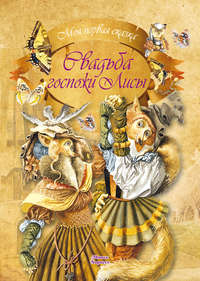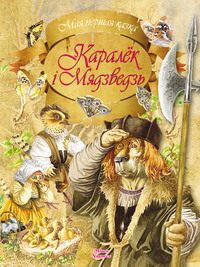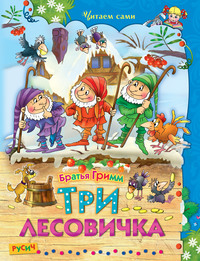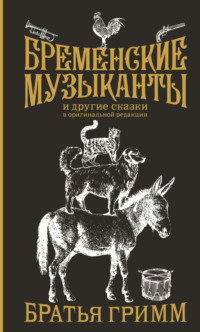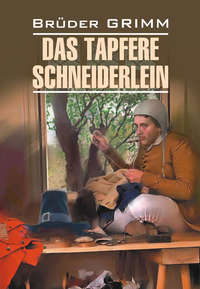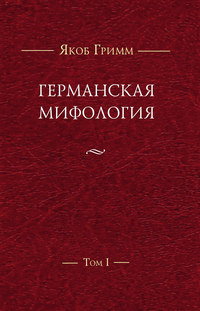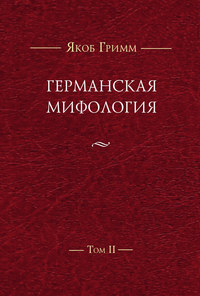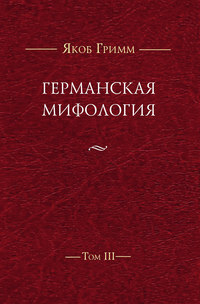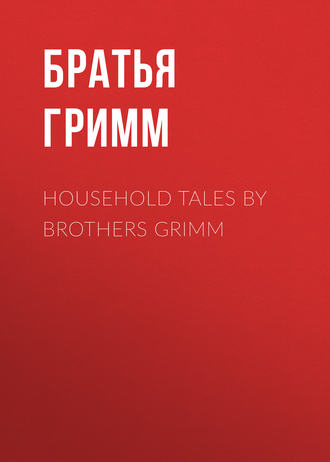 полная версия
полная версияHousehold Tales by Brothers Grimm
So she went continually further and further in the wide world, never looking about her or resting, and the seven years were almost past; then she rejoiced and thought that they would soon be delivered, and yet they were so far from it! Once when they were thus moving onwards, no little feather and no drop of red blood fell, and when she raised her eyes the dove had disappeared. And as she thought to herself, "In this no man can help thee," she climbed up to the sun, and said to him, "Thou shinest into every crevice, and over every peak, hast thou not seen a white dove flying?" "No," said the sun, "I have seen none, but I present thee with a casket, open it when thou art in sorest need." Then she thanked the sun, and went on until evening came and the moon appeared; she then asked her, "Thou shinest the whole night through, and on every field and forest, hast thou not seen a white dove flying?" "No," said the moon, "I have seen no dove, but here I give thee an egg, break it when thou art in great need." She thanked the moon, and went on until the night wind came up and blew on her, then she said to it, "Thou blowest over every tree and under every leaf, hast thou not seen a white dove flying?" "No," said the night wind, "I have seen none, but I will ask the three other winds, perhaps they have seen it." The east wind and the west wind came, and had seen nothing, but the south wind said, "I have seen the white dove, it has flown to the Red Sea, where it has become a lion again, for the seven years are over, and the lion is there fighting with a dragon; the dragon, however, is an enchanted princess." The night wind then said to her, "I will advise thee; go to the Red Sea, on the right bank are some tall reeds, count them, break off the eleventh, and strike the dragon with it, then the lion will be able to subdue it, and both then will regain their human form. After that, look round and thou wilt see the griffin which is by the Red Sea; swing thyself, with thy beloved, on to his back, and the bird will carry you over the sea to your own home. Here is a nut for thee, when thou are above the center of the sea, let the nut fall, it will immediately shoot up, and a tall nut-tree will grow out of the water on which the griffin may rest; for if he cannot rest, he will not be strong enough to carry you across, and if thou forgettest to throw down the nut, he will let you fall into the sea."
Then she went thither, and found everything as the night wind had said. She counted the reeds by the sea, and cut off the eleventh, struck the dragon therewith, whereupon the lion overcame it, and immediately both of them regained their human shapes. But when the princess, who had before been the dragon, was delivered from enchantment, she took the youth by the arm, seated herself on the griffin, and carried him off with her. There stood the poor maiden who had wandered so far and was again forsaken. She sat down and cried, but at last she took courage and said, "Still I will go as far as the wind blows and as long as the cock crows, until I find him," and she went forth by long, long roads, until at last she came to the castle where both of them were living together; there she heard that soon a feast was to be held, in which they would celebrate their wedding, but she said, "God still helps me," and opened the casket that the sun had given her. A dress lay therein as brilliant as the sun itself. So she took it out and put it on, and went up into the castle, and everyone, even the bride herself, looked at her with astonishment. The dress pleased the bride so well that she thought it might do for her wedding-dress, and asked if it was for sale? "Not for money or land," answered she, "but for flesh and blood." The bride asked her what she meant by that, so she said, "Let me sleep a night in the chamber where the bridegroom sleeps." The bride would not, yet wanted very much to have the dress; at last she consented, but the page was to give the prince a sleeping-draught. When it was night, therefore, and the youth was already asleep, she was led into the chamber; she seated herself on the bed and said, "I have followed after thee for seven years. I have been to the sun and the moon, and the four winds, and have enquired for thee, and have helped thee against the dragon; wilt thou, then quite forget me?" But the prince slept so soundly that it only seemed to him as if the wind were whistling outside in the fir-trees. When therefore day broke, she was led out again, and had to give up the golden dress. And as that even had been of no avail, she was sad, went out into a meadow, sat down there, and wept. While she was sitting there, she thought of the egg which the moon had given her; she opened it, and there came out a clucking hen with twelve chickens all of gold, and they ran about chirping, and crept again under the old hen's wings; nothing more beautiful was ever seen in the world! Then she arose, and drove them through the meadow before her, until the bride looked out of the window. The little chickens pleased her so much that she immediately came down and asked if they were for sale. "Not for money or land, but for flesh and blood; let me sleep another night in the chamber where the bridegroom sleeps." The bride said, "Yes," intending to cheat her as on the former evening. But when the prince went to bed he asked the page what the murmuring and rustling in the night had been? On this the page told all; that he had been forced to give him a sleeping-draught, because a poor girl had slept secretly in the chamber, and that he was to give him another that night. The prince said, "Pour out the draught by the bed-side." At night, she was again led in, and when she began to relate how ill all had fared with her, he immediately recognized his beloved wife by her voice, sprang up and cried, "Now I really am released! I have been as it were in a dream, for the strange princess has bewitched me so that I have been compelled to forget thee, but God has delivered me from the spell at the right time." Then they both left the castle secretly in the night, for they feared the father of the princess, who was a sorcerer, and they seated themselves on the griffin which bore them across the Red Sea, and when they were in the midst of it, she let fall the nut. Immediately a tall nut-tree grew up, whereon the bird rested, and then carried them home, where they found their child, who had grown tall and beautiful, and they lived thenceforth happily until their death.
89 The Goose-Girl
THERE was once upon a time an old Queen whose husband had been dead for many years, and she had a beautiful daughter. When the princess grew up she was betrothed to a prince who lived at a great distance. When the time came for her to be married, and she had to journey forth into the distant kingdom, the aged Queen packed up for her many costly vessels of silver and gold, and trinkets also of gold and silver; and cups and jewels, in short, everything which appertained to a royal dowry, for she loved her child with all her heart. She likewise sent her maid in waiting, who was to ride with her, and hand her over to the bridegroom, and each had a horse for the journey, but the horse of the King's daughter was called Falada, and could speak. So when the hour of parting had come, the aged mother went into her bedroom, took a small knife and cut her finger with it until it bled, then she held a white handkerchief to it into which she let three drops of blood fall, gave it to her daughter and said, "Dear child, preserve this carefully, it will be of service to you on your way."
So they took a sorrowful leave of each other; the princess put the piece of cloth in her bosom, mounted her horse, and then went away to her bridegroom. After she had ridden for a while she felt a burning thirst, and said to her waiting-maid, "Dismount, and take my cup which thou hast brought with thee for me, and get me some water from the stream, for I should like to drink." "If you are thirsty," said the waiting-maid, "get off your horse yourself, and lie down and drink out of the water, I don't choose to be your servant." So in her great thirst the princess alighted, bent down over the water in the stream and drank, and was not allowed to drink out of the golden cup. Then she said, "Ah, Heaven!" and the three drops of blood answered, "If thy mother knew, her heart would break." But the King's daughter was humble, said nothing, and mounted her horse again. She rode some miles further, but the day was warm, the sun scorched her, and she was thirsty once more, and when they came to a stream of water, she again cried to her waiting-maid, "Dismount, and give me some water in my golden cup," for she had long ago forgotten the girl's ill words. But the waiting-maid said still more haughtily, "If you wish to drink, drink as you can, I don't choose to be your maid." Then in her great thirst the King's daughter alighted, bent over the flowing stream, wept and said, "Ah, Heaven!" and the drops of blood again replied, "If thy mother knew this, her heart would break." And as she was thus drinking and leaning right over the stream, the handkerchief with the three drops of blood fell out of her bosom, and floated away with the water without her observing it, so great was her trouble. The waiting-maid, however, had seen it, and she rejoiced to think that she had now power over the bride, for since the princess had lost the drops of blood, she had become weak and powerless. So now when she wanted to mount her horse again, the one that was called Falada, the waiting-maid said, "Falada is more suitable for me, and my nag will do for thee" and the princess had to be content with that. Then the waiting-maid, with many hard words, bade the princess exchange her royal apparel for her own shabby clothes; and at length she was compelled to swear by the clear sky above her, that she would not say one word of this to any one at the royal court, and if she had not taken this oath she would have been killed on the spot. But Falada saw all this, and observed it well.
The waiting-maid now mounted Falada, and the true bride the bad horse, and thus they traveled onwards, until at length they entered the royal palace. There were great rejoicings over her arrival, and the prince sprang forward to meet her, lifted the waiting-maid from her horse, and thought she was his consort. She was conducted upstairs, but the real princess was left standing below. Then the old King looked out of the window and saw her standing in the courtyard, and how dainty and delicate and beautiful she was, and instantly went to the royal apartment, and asked the bride about the girl she had with her who was standing down below in the courtyard, and who she was? "I picked her up on my way for a companion; give the girl something to work at, that she may not stand idle." But the old King had no work for her, and knew of none, so he said, "I have a little boy who tends the geese, she may help him." The boy was called Conrad, and the true bride had to help him to tend the geese. Soon afterwards the false bride said to the young King, "Dearest husband, I beg you to do me a favour." He answered, "I will do so most willingly." "Then send for the knacker, and have the head of the horse on which I rode here cut off, for it vexed me on the way." In reality, she was afraid that the horse might tell how she had behaved to the King's daughter. Then she succeeded in making the King promise that it should be done, and the faithful Falada was to die; this came to the ears of the real princess, and she secretly promised to pay the knacker a piece of gold if he would perform a small service for her. There was a great dark-looking gateway in the town, through which morning and evening she had to pass with the geese: would he be so good as to nail up Falada's head on it, so that she might see him again, more than once. The knacker's man promised to do that, and cut off the head, and nailed it fast beneath the dark gateway.
Early in the morning, when she and Conrad drove out their flock beneath this gateway, she said in passing,
"Alas, Falada, hanging there!"
Then the head answered,
"Alas, young Queen, how ill you fare! If this your tender mother knew, Her heart would surely break in two."Then they went still further out of the town, and drove their geese into the country. And when they had come to the meadow, she sat down and unbound her hair which was like pure gold, and Conrad saw it and delighted in its brightness, and wanted to pluck out a few hairs. Then she said,
"Blow, blow, thou gentle wind, I say, Blow Conrad's little hat away, And make him chase it here and there, Until I have braided all my hair, And bound it up again."And there came such a violent wind that it blew Conrad's hat far away across country, and he was forced to run after it. When he came back she had finished combing her hair and was putting it up again, and he could not get any of it. Then Conrad was angry, and would not speak to her, and thus they watched the geese until the evening, and then they went home.
Next day when they were driving the geese out through the dark gateway, the maiden said,
"Alas, Falada, hanging there!"
Falada answered,
"Alas, young Queen, how ill you fare! If this your tender mother knew, Her heart would surely break in two."And she sat down again in the field and began to comb out her hair, and Conrad ran and tried to clutch it, so she said in haste,
"Blow, blow, thou gentle wind, I say, Blow Conrad's little hat away, And make him chase it here and there, Until I have braided all my hair, And bound it up again."Then the wind blew, and blew his little hat off his head and far away, and Conrad was forced to run after it, and when he came back, her hair had been put up a long time, and he could get none of it, and so they looked after their geese till evening came.
But in the evening after they had got home, Conrad went to the old King, and said, "I won't tend the geese with that girl any longer!" "Why not?" inquired the aged King. "Oh, because she vexes me the whole day long." Then the aged King commanded him to relate what it was that she did to him. And Conrad said, "In the morning when we pass beneath the dark gateway with the flock, there is a sorry horse's head on the wall, and she says to it,
"Alas, Falada, hanging there!"
And the head replies,
"Alas, young Queen how ill you fare! If this your tender mother knew, Her heart would surely break in two."And Conrad went on to relate what happened on the goose pasture, and how when there he had to chase his hat.
The aged King commanded him to drive his flock out again next day, and as soon as morning came, he placed himself behind the dark gateway, and heard how the maiden spoke to the head of Falada, and then he too went into the country, and hid himself in the thicket in the meadow. There he soon saw with his own eyes the goose-girl and the goose-boy bringing their flock, and how after a while she sat down and unplaited her hair, which shone with radiance. And soon she said,
"Blow, blow, thou gentle wind, I say, Blow Conrad's little hat away, And make him chase it here and there, Until I have braided all my hair, And bound it up again."Then came a blast of wind and carried off Conrad's hat, so that he had to run far away, while the maiden quietly went on combing and plaiting her hair, all of which the King observed. Then, quite unseen, he went away, and when the goose-girl came home in the evening, he called her aside, and asked why she did all these things. "I may not tell you that, and I dare not lament my sorrows to any human being, for I have sworn not to do so by the heaven which is above me; if I had not done that, I should have lost my life." He urged her and left her no peace, but he could draw nothing from her. Then said he, "If thou wilt not tell me anything, tell thy sorrows to the iron-stove there," and he went away. Then she crept into the iron-stove, and began to weep and lament, and emptied her whole heart, and said, "Here am I deserted by the whole world, and yet I am a King's daughter, and a false waiting-maid has by force brought me to such a pass that I have been compelled to put off my royal apparel, and she has taken my place with my bridegroom, and I have to perform menial service as a goose-girl. If my mother did but know that, her heart would break."
The aged King, however, was standing outside by the pipe of the stove, and was listening to what she said, and heard it. Then he came back again, and bade her come out of the stove. And royal garments were placed on her, and it was marvellous how beautiful she was! The aged King summoned his son, and revealed to him that he had got the false bride who was only a waiting-maid, but that the true one was standing there, as the sometime goose-girl. The young King rejoiced with all his heart when he saw her beauty and youth, and a great feast was made ready to which all the people and all good friends were invited. At the head of the table sat the bridegroom with the King's daughter at one side of him, and the waiting-maid on the other, but the waiting-maid was blinded, and did not recognize the princess in her dazzling array. When they had eaten and drunk, and were merry, the aged King asked the waiting-maid as a riddle, what a person deserved who had behaved in such and such a way to her master, and at the same time related the whole story, and asked what sentence such an one merited? Then the false bride said, "She deserves no better fate than to be stripped entirely naked, and put in a barrel which is studded inside with pointed nails, and two white horses should be harnessed to it, which will drag her along through one street after another, till she is dead." "It is thou," said the aged King, "and thou hast pronounced thine own sentence, and thus shall it be done unto thee." And when the sentence had been carried out, the young King married his true bride, and both of them reigned over their kingdom in peace and happiness.
90 The Young Giant
Once on a time a countryman had a son who was as big as a thumb, and did not become any bigger, and during several years did not grow one hair's breadth. Once when the father was going out to plough, the little one said, "Father, I will go out with you." "Thou wouldst go out with me?" said the father. "Stay here, thou wilt be of no use out there, besides thou mightest get lost!" Then Thumbling began to cry, and for the sake of peace his father put him in his pocket, and took him with him. When he was outside in the field, he took him out again, and set him in a freshly-cut furrow. Whilst he was there, a great giant came over the hill. "Do thou see that great bogie?" said the father, for he wanted to frighten the little fellow to make him good; "he is coming to fetch thee." The giant, however, had scarcely taken two steps with his long legs before he was in the furrow. He took up little Thumbling carefully with two fingers, examined him, and without saying one word went away with him. His father stood by, but could not utter a sound for terror, and he thought nothing else but that his child was lost, and that as long as he lived he should never set eyes on him again.
The giant, however, carried him home, suckled him, and Thumbling grew and became tall and strong after the manner of giants. When two years had passed, the old giant took him into the forest, wanted to try him, and said, "Pull up a stick for thyself." Then the boy was already so strong that he tore up a young tree out of the earth by the roots. But the giant thought, "We must do better than that," took him back again, and suckled him two years longer. When he tried him, his strength had increased so much that he could tear an old tree out of the ground. That was still not enough for the giant; he again suckled him for two years, and when he then went with him into the forest and said, "Now just tear up a proper stick for me," the boy tore up the strongest oak-tree from the earth, so that it split, and that was a mere trifle to him. "Now that will do," said the giant, "thou art perfect," and took him back to the field from whence he had brought him. His father was there following the plough. The young giant went up to him, and said, "Does my father see what a fine man his son has grown into?"
The farmer was alarmed, and said, "No, thou art not my son; I don't want thee leave me!" "Truly I am your son; allow me to do your work, I can plough as well as you, nay better." "No, no, thou art not my son; and thou canst not plough go away!" However, as he was afraid of this great man, he left go of the plough, stepped back and stood at one side of the piece of land. Then the youth took the plough, and just pressed it with one hand, but his grasp was so strong that the plough went deep into the earth. The farmer could not bear to see that, and called to him, "If thou art determined to plough, thou must not press so hard on it, that makes bad work." The youth, however, unharnessed the horses, and drew the plough himself, saying, "Just go home, father, and bid my mother make ready a large dish of food, and in the meantime I will go over the field." Then the farmer went home, and ordered his wife to prepare the food; but the youth ploughed the field which was two acres large, quite alone, and then he harnessed himself to the harrow, and harrowed the whole of the land, using two harrows at once. When he had done it, he went into the forest, and pulled up two oak-trees, laid them across his shoulders, and hung on them one harrow behind and one before, and also one horse behind and one before, and carried all as if it had been a bundle of straw, to his parents' house. When he entered the yard, his mother did not recognize him, and asked, "Who is that horrible tall man?" The farmer said, "That is our son." She said, "No that cannot be our son, we never had such a tall one, ours was a little thing." She called to him, "Go away, we do not want thee!" The youth was silent, but led his horses to the stable, gave them some oats and hay, and all that they wanted. When he had done this, he went into the parlour, sat down on the bench and said, "Mother, now I should like something to eat, will it soon be ready?" Then she said, "Yes," and brought in two immense dishes full of food, which would have been enough to satisfy herself and her husband for a week. The youth, however, ate the whole of it himself, and asked if she had nothing more to set before him. "No," she replied, "that is all we have." "But that was only a taste, I must have more." She did not dare to oppose him, and went and put a huge caldron full of food on the fire, and when it was ready, carried it in. "At length come a few crumbs," said he, and ate all there was, but it was still not sufficient to appease his hunger. Then said he, "Father, I see well that with you I shall never have food enough; if you will get me an iron staff which is strong, and which I cannot break against my knees, I will go out into the world." The farmer was glad, put his two horses in his cart, and fetched from the smith a staff so large and thick, that the two horses could only just bring it away. The youth laid it across his knees, and snap! he broke it in two in the middle like a bean-stalk, and threw it away. The father then harnessed four horses, and brought a bar which was so long and thick, that the four horses could only just drag it. The son snapped this also in twain against his knees, threw it away, and said, "Father, this can be of no use to me, you must harness more horses, and bring a stronger staff." So the father harnessed eight horses, and brought one which was so long and thick, that the eight horses could only just carry it. When the son took it in his hand, he broke off a bit from the top of it also, and said, "Father, I see that you will not be able to procure me any such staff as I want, I will remain no longer with you."
So he went away, and gave out that he was a smith's apprentice. He arrived at a village, wherein lived a smith who was a greedy fellow, who never did a kindness to any one, but wanted everything for himself. The youth went into the smithy and asked if he needed a journeyman. "Yes," said the smith, and looked at him, and thought, "That is a strong fellow who will strike out well, and earn his bread." So he asked, "How much wages dost thou want?" "I don't want any at all," he replied, "only every fortnight, when the other journeymen are paid, I will give thee two blows, and thou must bear them." The miser was heartily satisfied, and thought he would thus save much money. Next morning, the strange journeyman was to begin to work, but when the master brought the glowing bar, and the youth struck his first blow, the iron flew asunder, and the anvil sank so deep into the earth, that there was no bringing it out again. Then the miser grew angry, and said, "Oh, but I can't make any use of you, you strike far too powerfully; what will you have for the one blow?"


